NUDIPU calls for disability-friendly lockdown measures
While it is for a just cause, the impact of the lockdown is being felt by every section of the public, but particularly even more so by vulnerable groups such as persons with disability.
CORONAVIRUS PANDEMIC
KAMPALA - As of Wednesday, 52 people are confirmed to have coronavirus in Uganda, with no death related to COVID-19 registered. Globally, nearly 1.5 million people have been affected, with the death toll exceeding 80,000.
Uganda has ramped up its fight against the deadly virus, with a national taskforce led by Prime Minister Dr. Ruhakana Rugunda in place to ensure the efforts reach every part of the country.
The country is in partial lockdown to curb the spread of coronavirus, as a series of measures, including the suspension of most public activity and public transport, are under enforcement.
While it is for a just cause, the impact of the lockdown is being felt by every section of the public, but particularly even more so by vulnerable groups such as people with disabilities (PWDs).
Their umbrella organisation, the National Union of Disabled Persons of Uganda (NUDIPU), is concerned and has come out to rally the government and other stakeholders to consider them in ongoing efforts to stem the spread of COVID-19.
Below, in full, is NUDIPU's statement (by CEO Edson Ngirabakunzi) on the situation of PWDs during the coronavirus lockdown:
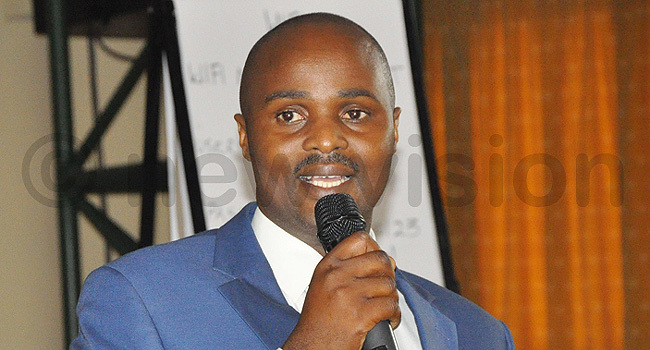 NUDIPU chief executive officer Edson Ngirabakunzi
NUDIPU chief executive officer Edson Ngirabakunzi
______________________
NUDIPU, an umbrella organization of persons with disabilities in Uganda, expresses great concern that COVID-19 will have a disaprorportinate burden on the lives of persons with disabilities in Uganda.
The impact of the coronavirus pandemic will be lethal to persons with disabilities, who are the most vulnerable people. In their daily lives, they depend on third parties, such as helpers and guides, yet the pandemic strategies require social distancing, which is partly compromised by the nature of these people's disabilities.
For instance, the virus spreads through inhalation if somebody with the virus coughs or sneezes near you. It also spreads when the infected person pollutes surfaces such as tables and door handles. If you touch the polluted surface and without disinfecting your fingers, touch yourself in the soft parts of the body (eyes, nose or mouth) you also get infected. These are issues and concerns that require serious attention, especially when it comes to disability.
On the last day of last month, President Yoweri Museveni issued more stringent measures to be enforced for 14 days in order to decisively defeat the virus. All the directives and pronouncements need to be disability-friendly and inclusive of disability needs and concerns. As of now the all the directives are not disability-responsive, especially on key disability barriers.
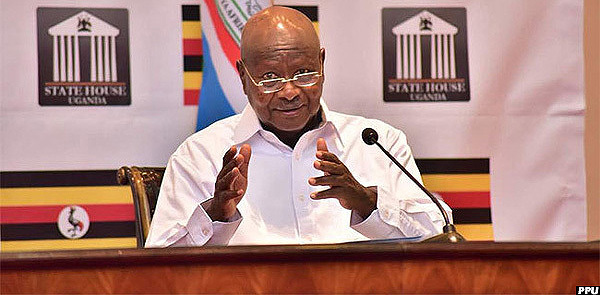 President Museveni has issued a series of nationwide guidelines to follow in Uganda's fight against the coronavirus
President Museveni has issued a series of nationwide guidelines to follow in Uganda's fight against the coronavirus
The directives and any other COVID-19 response should ensure PWDs are not left behind in the battle against the pandemic. PWDs constitute 12.4% of the population and, therefore, any intervention and strategy that does not include them will in the long run prolong coronavirus eradication in Uganda.
There are various disability-specific barriers that the government and other stakeholders need to understand and appreciate while planning and managing the COVID-19 response in Uganda, as follow;
• Persons with disabilities are at increased risk of developing more severe symptoms and dying due weakened immune systems, inaccessible healthcare institutions, homelessness, neglect, and experiences of discrimination and traumatization in the systems.
• Persons with visual impairments, for example, are susceptible to contracting COVID-19 since they rely heavily on third parties such as guides/helpers in their day-to-day lives. We are required to observe social distancing of at least four metres but this is difficult for persons with visual impairment since they have to depend on support persons while carrying out their daily duties.
• Communication gaps such as lack of sign language interpreters at health centres makes it hard for deaf people to access proper health facilities since they are not able to effectively communicate with the health workers. The requirement of calling resident district commissioners (RDCs) on phone in case of emergencies is poses difficulty for certain categories of PWDs, such as the deaf. This implies that such categories may go unattended to, hence worsening the fight against the coronavirus. This situation would be helped by allowing the use of sign language interpreters to accompany them in such circumstances.
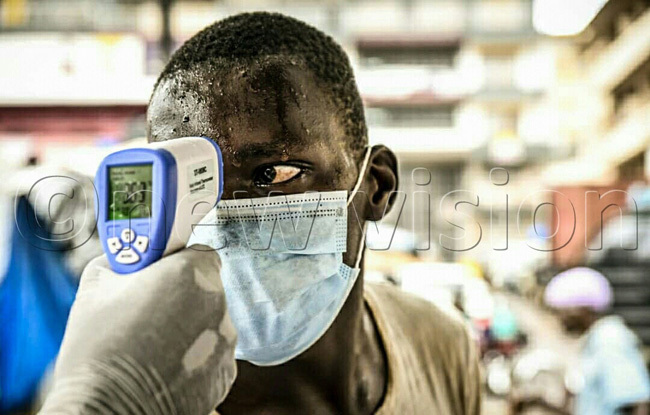 Uganda has enforced wide-reaching measures to stem the spread of coronavirus
Uganda has enforced wide-reaching measures to stem the spread of coronavirus
• Inaccessible health centres and facilities make it difficult for PWDs to access the services due to limited ramps. Some of the ramps do not meet the accessibility standards as enshrined in the Building Control Act. This makes it hard for persons with mobility challenges to access health services, especially during this pandemic with stringent guidelines in place.
• There exist barriers in accessing health information on how PWDs can protect themselves against the virus and how to manage it in case of anything. Some disability categories are disadvantaged. For instance, the deaf, blind and the deafblind persons cannot pick the message when the information is disseminated in inaccessible modes.
• There is no standard operating procedure or circular on how to deal with vulnerable members of the pubic, such as PWDs - and specifically pregnant women with disabilities - in the COVID 19 response.
• All the COVID19 response, such as mitigation plans and COVID19 committees, do not have representatives of persons with disabilities to provide expert opinion on disability management.
In light of the above, NUDIPU is making the following recommendations to Government, media, Uganda Communications Commission (UCC) and the community:
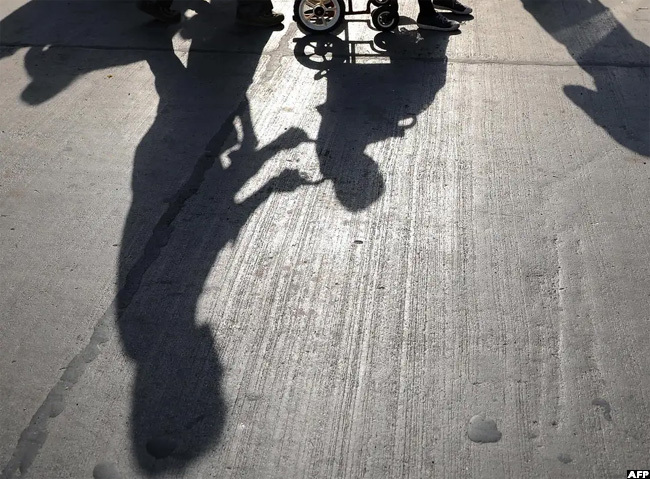 Worldwide, PWDs are a vulnerable group who deserve support from various stakeholders, especially in times of crisis
Worldwide, PWDs are a vulnerable group who deserve support from various stakeholders, especially in times of crisis
To Government
• Ensure respect and protection of the rights of PWDs as enshrined in international and national instruments during this COVID-19 pandemic and in all the measures being undertaken at national and local level.
• There should be affirmative action measures in place to enable PWDs to immediately access the RDC to get temporary permission to access emergency healthcare. We request that at least two (2) vehicles from NUDIPU be given stickers and allowed to be on road to specifically help PWDs in exceptional circumstances through our networks.
• Provide information about COVID-19 mitigation tips, public guidelines restriction plans and services offered in accessible formats, for example braille for the visually impaired and access to sign language interpretation during any of the press statements and briefings by the government.
• Ensure that persons with disabilities who are infected have equal access to quality healthcare services without discrimination of any kind.
• Cater for the needs of persons with mental illness and Epilepsy who entirely depend on drugs to live healthily by setting up clear guidelines on how they are to access their medication while minding their safety during this pandemic.
• The law enforcement agencies should be instructed to guard against torture of the PWDs using personal cars and their guides while trying to access urgent services.
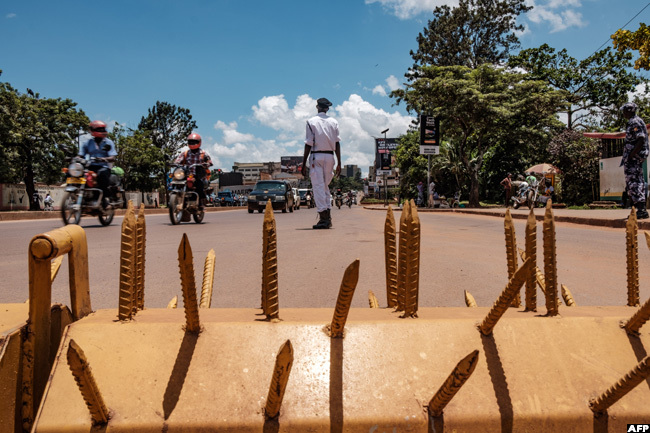
• There should be a well-coordinated plan by the district taskforce teams on how to handle PWDs by engaging disabled peoples organizations at national and district level. The leaders of PWDs from village to national level should be a resource to use by Government in the fight against coronavirus.
• PWDs should be given first priority among those to benefit from the food supplies and other services offered by the government, as well as be provided accessible data of PWDs who have benefited through updates by the government team.
• Goverment should work with persons with disability representatives at local levels to support the LCs in identifying and distributing food supplies.
• Provide sign language interpreters at various isolation health centres to ensure that the deaf people get equal access to services during the COVID-19 pandemic. Efforts should also be made to ensure that national addresses on COVID-19 are accessible to all persons.
• Conduct community outreach activities to identify and rescue PWDs who are ill-treated at home or within communities during this pandemic and provide adequate support to them in a manner that respects their human rights.
• Ensure that PWDs who are homeless during the period of social isolation are not mistreated by authorities and are provided with water, food and shelter on equal basis with others. They should have access to well-supplied and clean sanitation facilities, as well as testing and treatment, without discrimination, and in a manner that respects their human rights.
• Consult and actively involve NUDIPU and the representative organizations of PWDs in Uganda on how best to respond to the COVID-19 outbreak in a disability-inclusive manner. 14. PWds that may require quarantine should be put in a places with reasonably accommodative facilities such as toilets and accessible infrastructure to ease their mobility, among other support services.
• All security agencies involved in the COVID-19 response should be briefed about disability management, that is, how to handle disability issues and persons with disabilities. This briefing and sensitization should be done at all levels.
• Provide affirmative treatment to PWDs who may fall sick during this time without having to first seek permission from the RDC.
To the media
• Ensure disability-inclusive coverage about the COVID-19 outbreak and its impact on persons with disabilities through various platforms such as radio, TV, print and online platforms (website and social media).
To Uganda Communications Commission
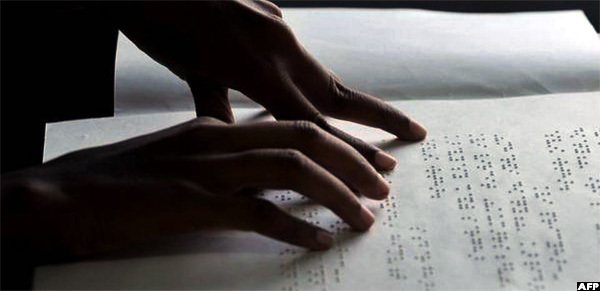 Official information should be prepared to cater for everyone, including persons with visual difficulties
Official information should be prepared to cater for everyone, including persons with visual difficulties
• Ensure that all televised standard operating procedures about the coronavirus and other related information caters for the needs of PWDs. This can be ensured through provision of sign language interpreters, using large font for text information, braille and other strategies to enable them comply with the government directives.
• Should suspend OTT tax charges on social media and subsidize internet and airtime packages to enable PWDs, such as the deaf to access information and effectively communicate since they may have to rely on WhatsApp and SMS for communication now considering the situation at hand.
To the community
• Ensure support for PWDs during the COVID-19 pandemic through call-ins and peer support without being discriminative in nature. There should be community-based services that are responsive and inclusive to the needs of PWDs.
• Provide practical support to PWDs, such as obtaining food and supplies, for they may not be able to leave their homes due to vulnerability factors that easily poses a challenge to their health or they may experience difficulty with leaving home during this period of sensitive concerns about contamination.